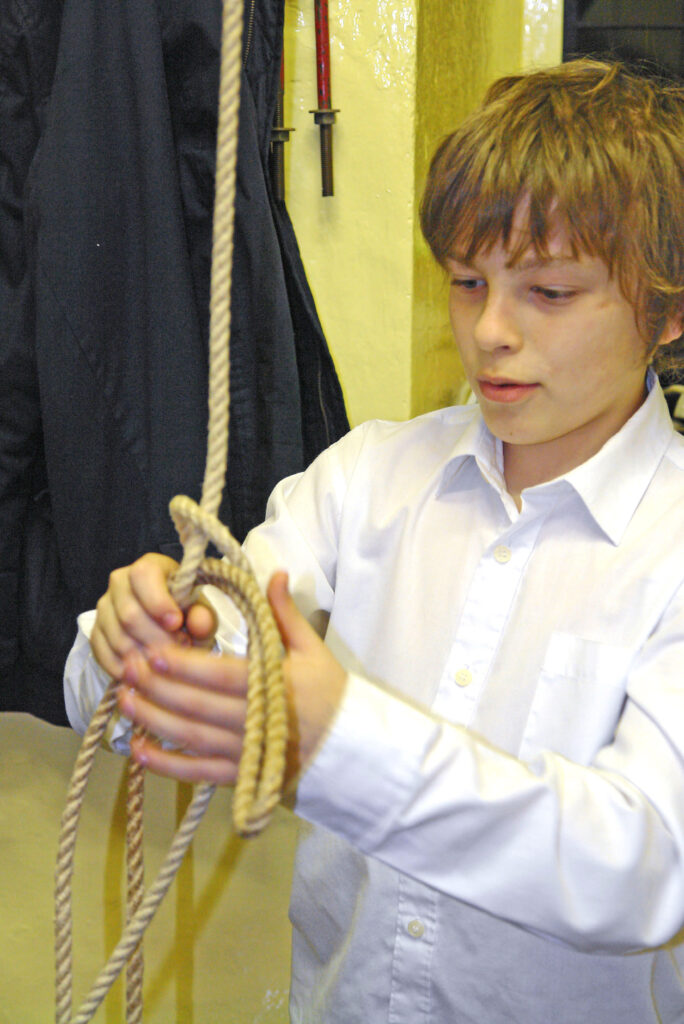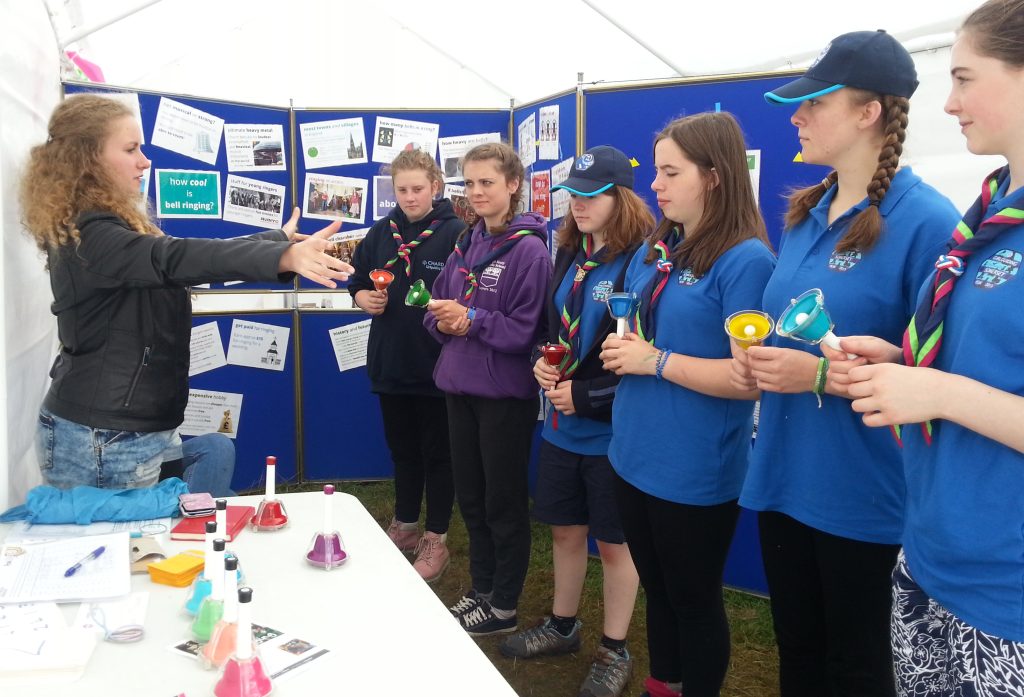Learning to Ring
You may feel overwhelmed on your first visit inside the tower. But don’t worry, you will be taught to ring in small steps and at your own pace, and the things which seemed baffling at first will become clear as you progress.
Ringing is a skill which takes time and dedication to learn, so don’t be discouraged if you don’t pick it up immediately.
You will have lots of fun and achievements along the way, as well as the support of other ringers.
You might even earn badges or certificates as you progress.
Modern ringing technology can help you, including apps, videos and websites, and you may have the chance to use a ringing simulator, dumbell or CCTV.
At your first session you will find out how bells are rung, and might be able to watch bellringing taking place.

You might be taught on a ‘tied’ bell: a bell which has been made temporarily silent by immobilising the clapper.
Bell Handling – How to ring the bell
Your teacher will show you how to hold the rope and will guide your hands as you pull, initially ringing the bell with you. So they need to sometimes touch your hands until you get used to the grip and movements.
Learning to handle a bell is split into very small steps and exercises, which will build up gradually, until you can ring the bell by yourself.
You will also learn how to tie the bellringers’ knot!
Your teacher will ensure that you are doing it correctly, giving you plenty of practice and encouragement throughout.

Rounds – Ringing in time with others
Once you can ring a bell alone, you will learn to to ring in time with other ringers, ringing the bells down the scale, which is called Rounds.
When you can ring Rounds you can call yourself a ringer! And you can:
- Join a ringing association (e.g. DDA and EDWNA) and go to their events.
- Ring on Sundays and for weddings and special events.
- Visit other towers – all unique & often ancient.
- Help with belfry maintenance (if you are able to).
- Read The Ringing World – the weekly newspaper for ringers.
- Tell your friends what a fantastic activity ringing is and invite them to try it!
Ringing Changes
Learn to move your bell into another place in the sequence when an instruction is called out, which is Call Changes.
Then What?
Lots of opportunities to do different things (you don’t have to do them all! – Your choice):
- Plain Hunt and Methods – continuously moving your place in the sequence to a set pattern of changes.
- Thousands of different methods for you to try.
- Lots of occasions to ring for.
- Thousands of towers to visit and bells of all sizes to ring.
- Lots of ringing meetings and socials.
- Ringing courses to attend.
- Ringing contests to enter – and maybe win!
- Calling and conducting (the ringing instructions).
- Quarter peals (at least 1260 changes) and peals (at least 5000 changes) to attempt.
- Local ringing practices to join when you’re away from home.
- Ringing holidays to go on.
- Volunteering – organising, promoting, fundraising, etc.
- and much more!
